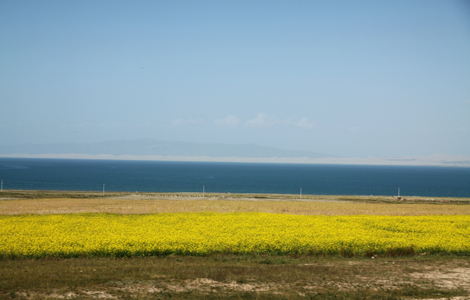Jailed boss is 'a warning to others'
Updated: 2011-09-24 08:09
By Zheng Caixiong (China Daily)
|
|||||||||
GUANGZHOU - The conviction of a Chinese fugitive for money laundering in Australia has been hailed as a major breakthrough in joint efforts between the two countries to punish corrupt officials and executives.
Li Jixiang, former manager of Nanhai Zhiye, a State-owned real estate company, was sentenced to 26 years in prison for abuses of power, accepting bribes and misappropriating public funds.
The Guangdong provincial procuratorate said that more than 30 million yuan ($4.7 million) of 40 million yuan he illegally transferred abroad had also been recovered.
"This conviction just shows the progress the procuratorate has made in cooperating with foreign counterparts to pursue and prosecute corrupt officials over the past 8 years," the authority said in a statement.
It is hoped the sentence will deter other officials suspected of corruption from trying to escape overseas, it added.
Li was found guilty on nine charges in Queensland following a court hearing on Sept 13. He was sentenced the next day. According to Australian media, he will not be released on parole for at least nine years. He has not appealed the verdict.
The 51-year-old fled to Australia through Hong Kong on Sept 30, 2003, after stealing large sums of public funds. Five months later, the Guangdong procuratorate set up a task force to look into the case.
Investigators found out Li Jixiang collaborated with Li Yunnan, former director of the Nanhai district housing fund management center in of Foshan, Guangdong, to illegally transfer 40 million yuan abroad between June 1998 and May 2001.
They used the money to buy villas, depositing the rest in personal bank accounts in Australia, where both of their wives emigrated to in 1999.
After reporting the case to the Supreme People's Procuratorate, Guangdong officials were given the green light to ask Australian police for help in October 2005.
After exchanging evidence, Chinese procurators and Australia police agreed to cooperate in fighting corruption and detaining fugitives from Guangdong.
Li Jixiang's bank accounts and other assets were eventually frozen in 2007, and he was summoned to appear in court on Aug 10 that year. His passport was confiscated to prevent him fleeing the country.
At the initial hearing, 13 procurators and witnesses in Guangdong gave evidence using a remote video link.
Li Jixiang is just one of about 1,240 corrupt Guangdong officials and business executives who have escaped overseas.
To fight the problem, the province is taking the lead by launching a pilot project this year that requires Party and government officials to report their assets, investments and even the jobs of their spouses and children, said Zhu Ming-guo, Guangdong's deputy Party chief.
Those people whose wives and children emigrate abroad also have little chance of being promoted to top posts, he added.










